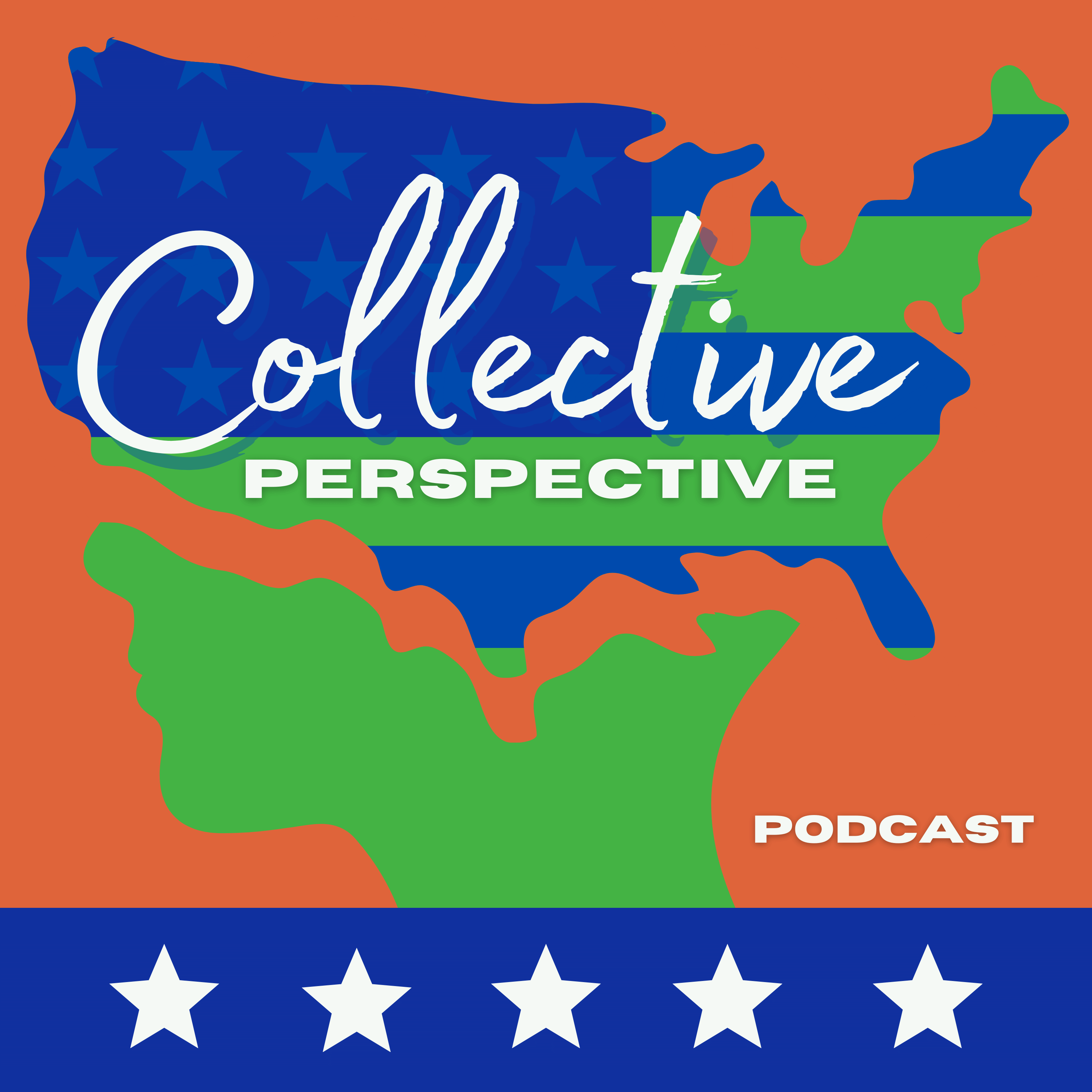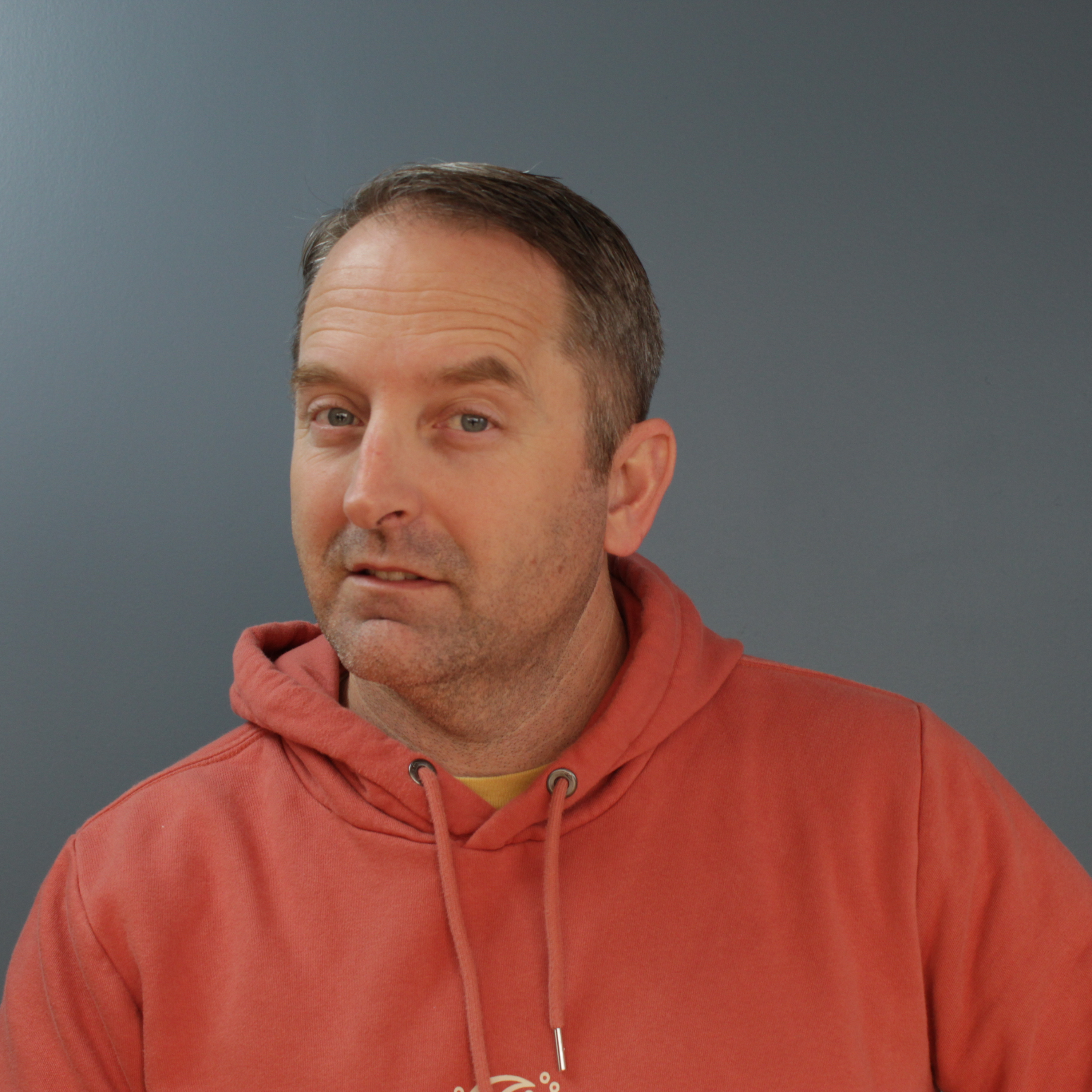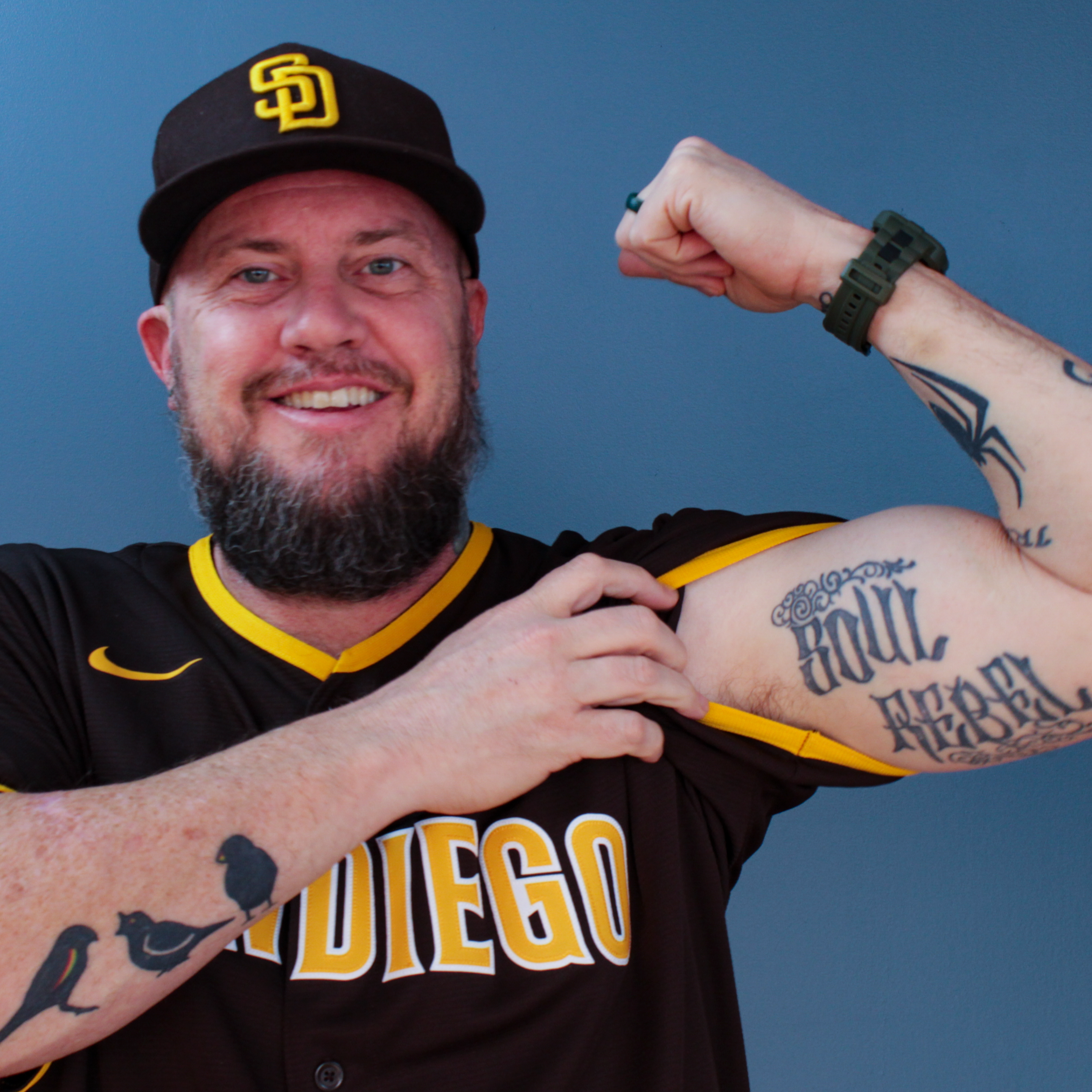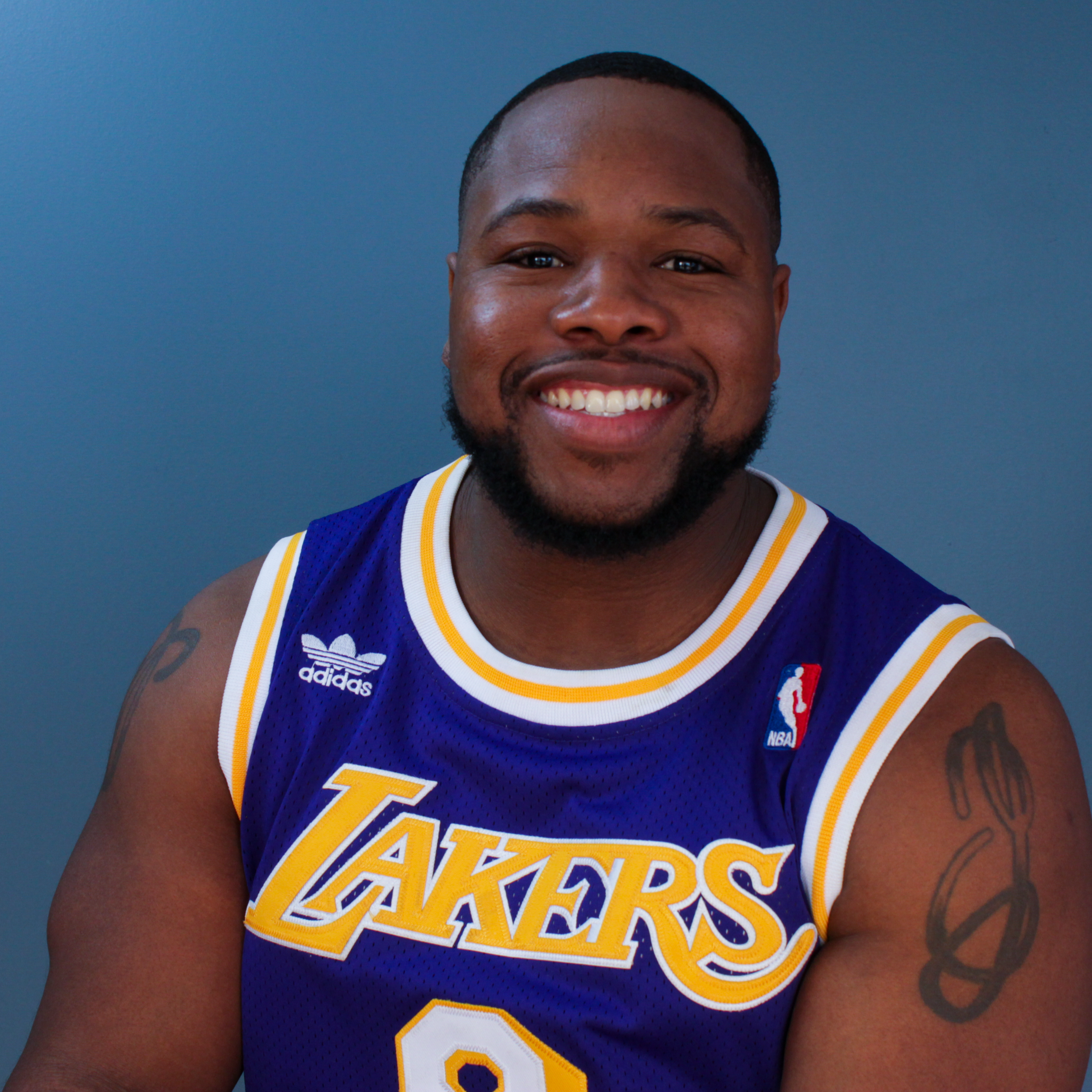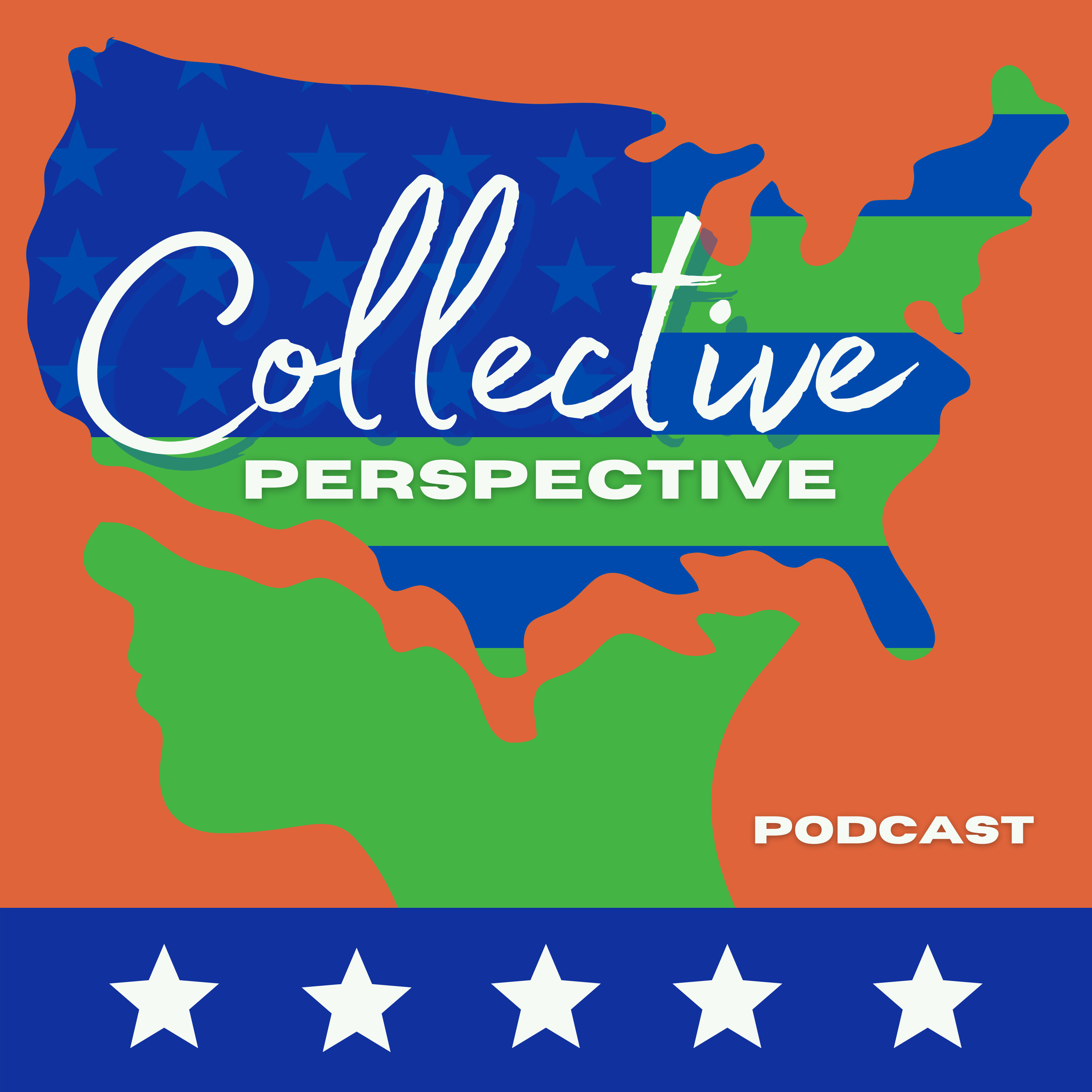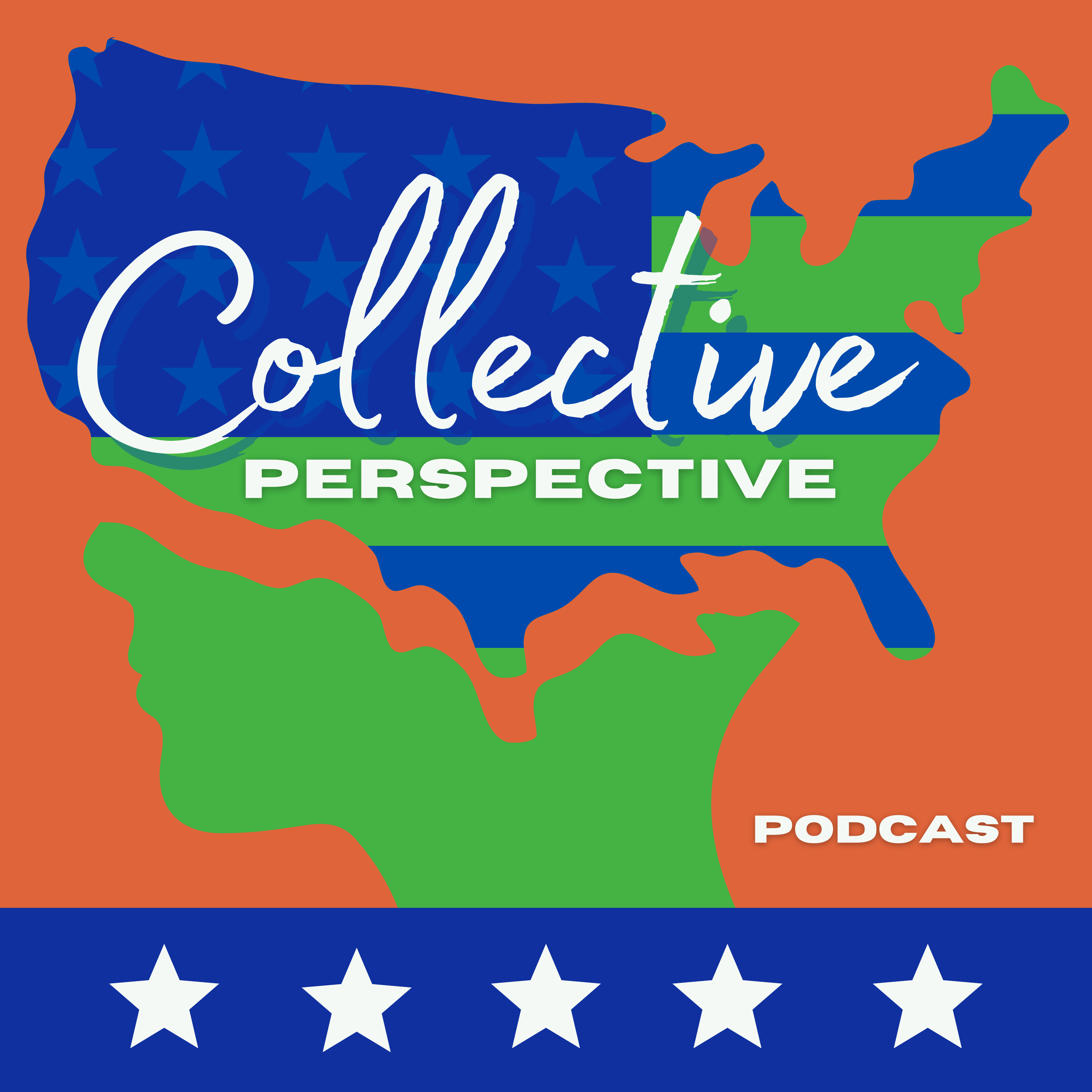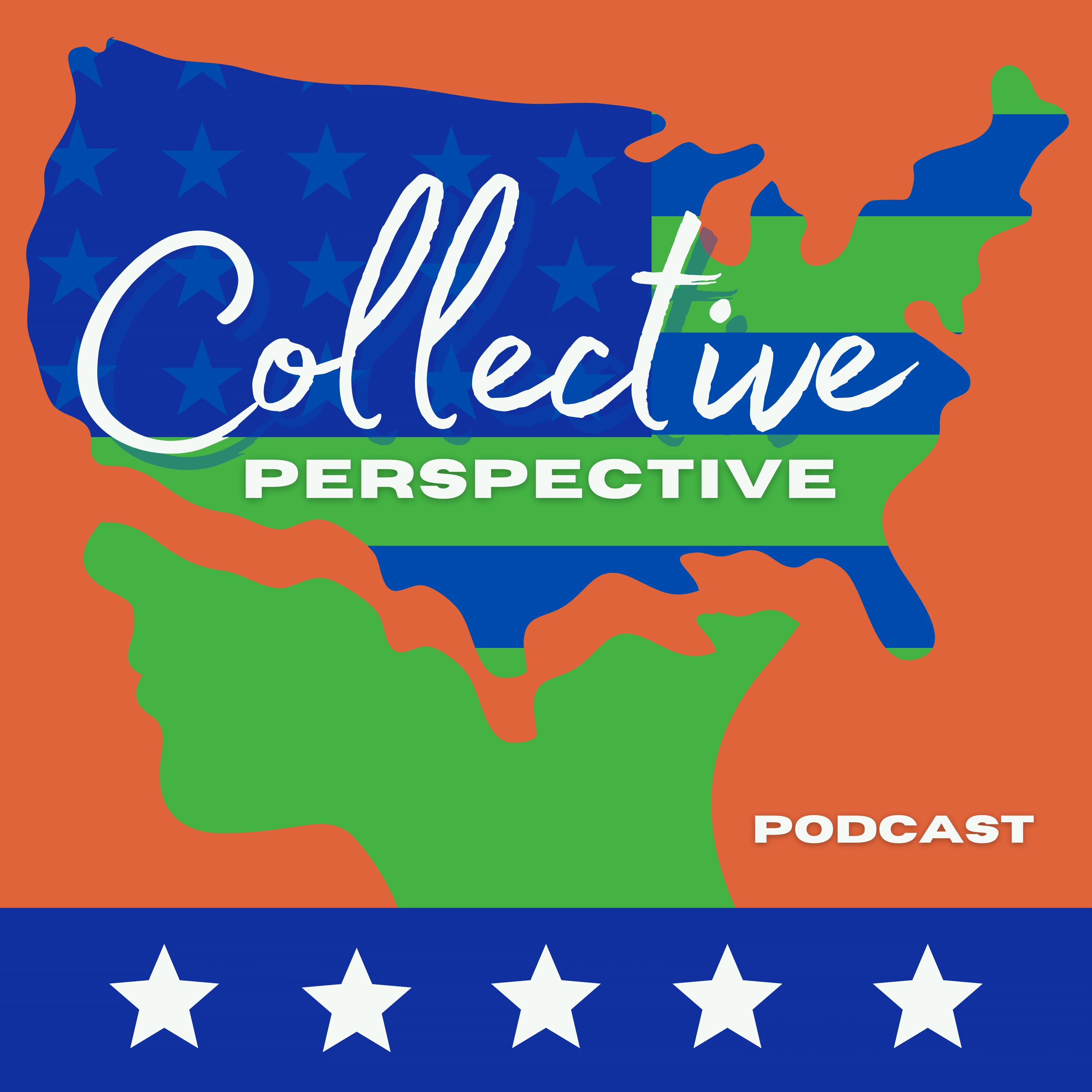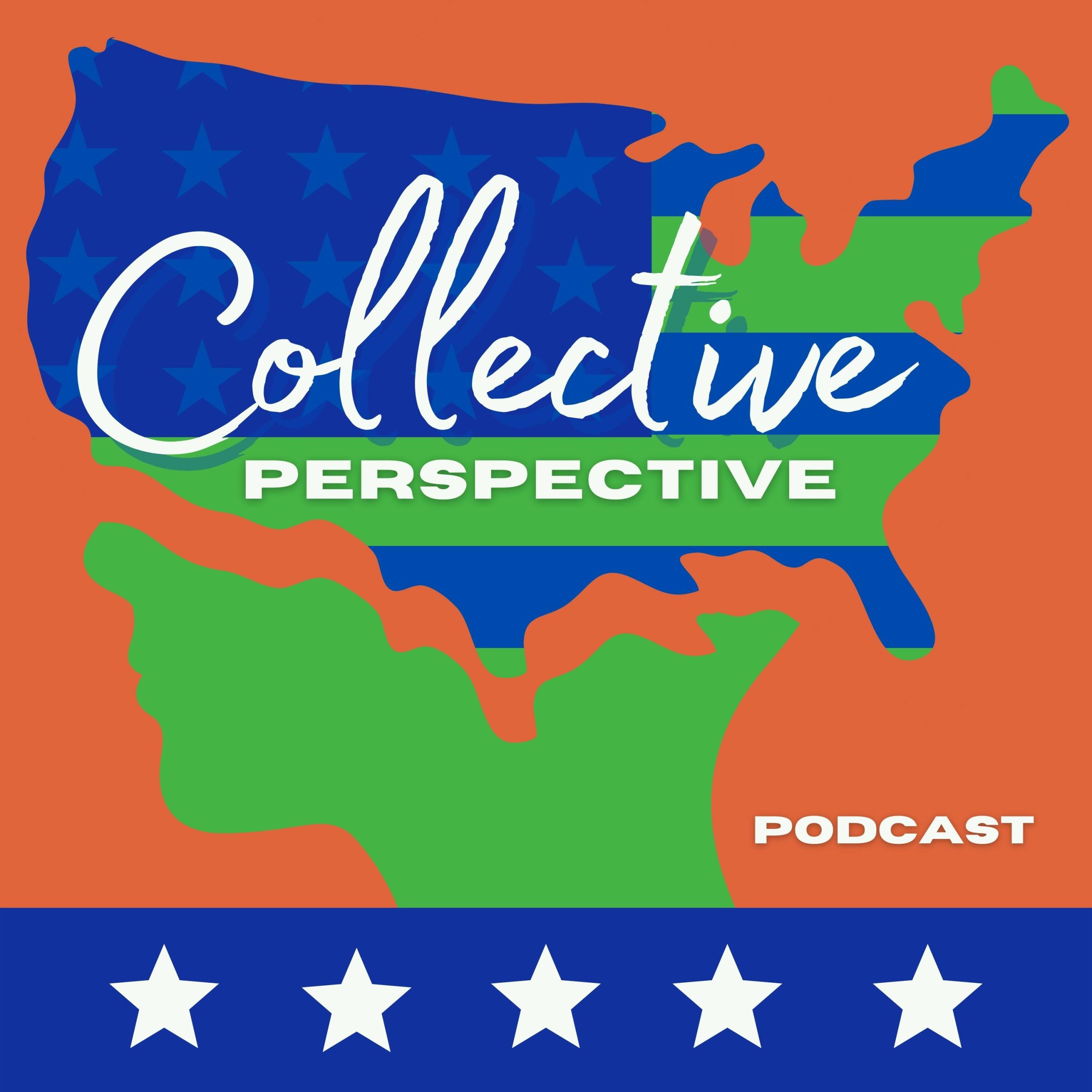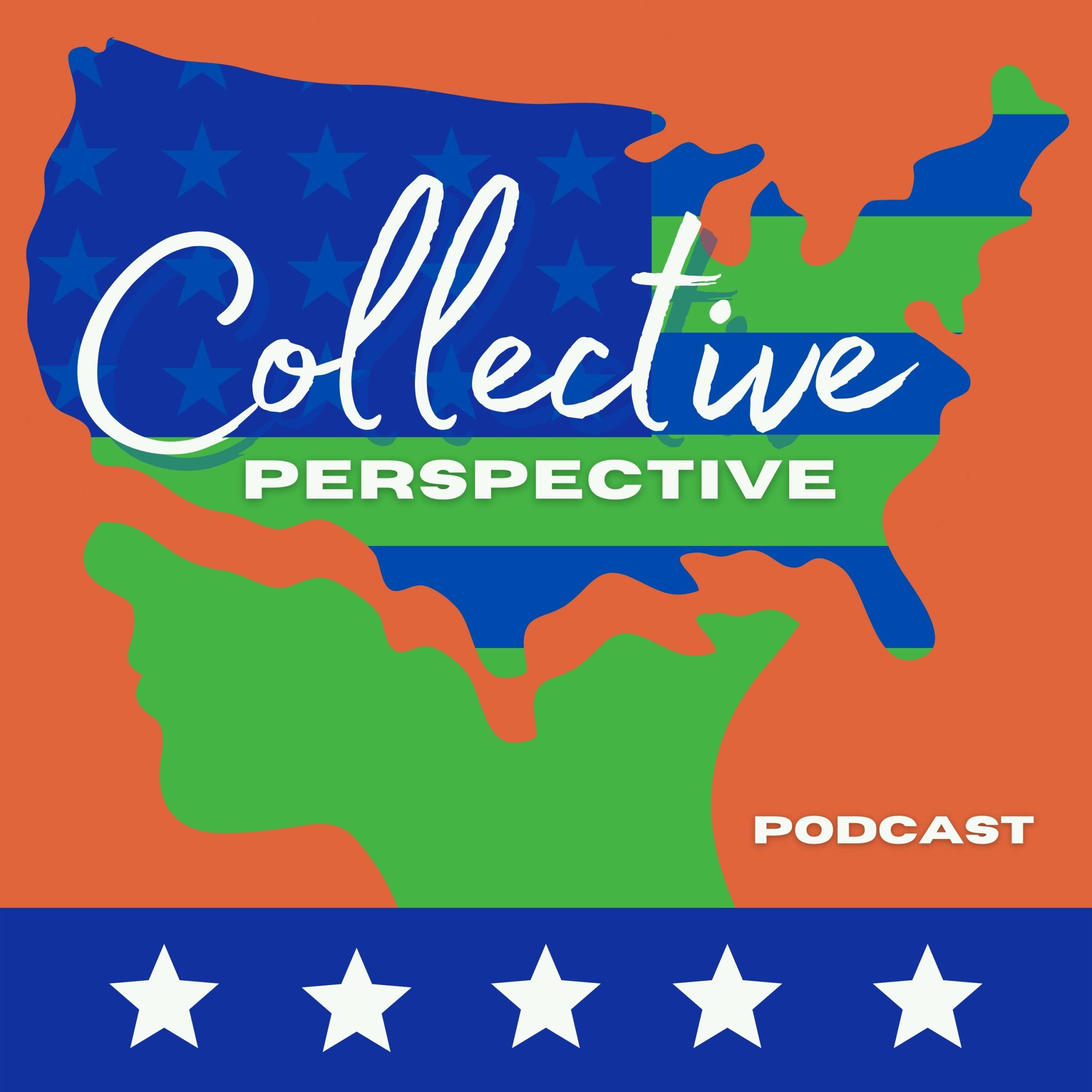Episode Transcript
This isn't just a podcast, it's a reminder. A reminder of what makes America Stronger isn't the headline or a hashtag. It's people from the ones building our homes to the ones rebuilding their lives, veterans, tradesmen, neighbors and volunteers, real people doing real things. Here we find common ground first, and then we work on our differences.
This is the collective perspective podcast where purpose, people, and progress. Hey everybody. Welcome back to the Collective Perspective podcast. My name is Jeff, one of your hosts, and I'm here with my buddy Travis. What's up, Travis? Welcome back, everybody. Glad to be back. And today we're talking about division.
So fractured, uh, but not broken. Okay. Division is something that could be resolved and I, I feel a lot of it's communication, but I don't know about you guys, but. I, I, I guess where division really kind of started for a lot of people is, uh, when cell phones became popular in the internet, I. I remember back in the day, Travis, and I'm sure you do too.
'cause you have good, of course you remember, uh, unless you, I'm noted at some point in your life, but, uh, some of us don't have the privilege of knowing. I think it's a privilege of knowing like what life was like without a cell phone in the internet. I, I can agree with that. Yeah. Not knowing what it was like to.
Not have someone be able to keep tabs on you 24 7 when you were out, you were out. If you didn't have your phone with you, then nobody, you didn't have a phone with you. It was all landline. So yeah, I remember that. And it was, it was a wild time. Uh, we did a lot of things that we're kind of glad we didn't get on camera, but yeah.
But it was a lot of in, in the moment type of things and we're bonding. Um, you know, if I didn't see you for a year. We would only have talking on the phone, and that would be something that we did on purpose. But it may be a whole year's time where you had posted, not that you did, but for example, if somebody had posted something on the internet that you didn't agree with, or, uh, you didn't go on that social media channel that they're on, but then you reunite with them, uh, it, you know.
It, it's a whole different chemistry there. Yeah. I I think being in person is a, is a, is a whole lot, like you said, it's a, it's a different chemistry. Uh, when you're, when you disagree with somebody, you don't really get that chance to ask them, what do you mean by that? And you know, when they explain it, you can maybe understand it better, but you still may not agree with them.
But it, it, it's a different chemistry. You are not. Their enemy, your their friend trying to work through something. I would hope you would agree with us when we say that division isn't just a political thing, it's an emotional thing. I do agree with that too. Now there's division between politics of course, but there's also division within families, churches, sports, and communities.
There's many types of division, uh, socioeconomic, uh, educational, you name it. You can find a way to divide, uh, any segment into two opposing groups. I think. So I, I would hope you would agree that anybody that, uh, has an opposing type of view, uh, division creates a lack of trust, a purpose and collective hope.
It does eat away at, uh, that trust when you ha when you're divided and you don't really see eye to eye just yet. Uh, I think it, I think it comes down to trust more along the lines of that, uh. Division makes you think like there's something they're keeping away from you, something, something they're keeping from you is maybe why you feel divided.
Oh, okay. Maybe in a way, I don't know. I wanna say that there's many facets or, or faces, division one of 'em is political. That's probably the most popular at this point in our lives, is the political, uh, differences that we have. And, um, let's face it, uh. That division is, is mostly emotional. It's, it's based off of emotional things.
Yeah. I, I think the political division is, is very emotional. Uh, because you know, you, you have one side that is let people do what they want, and the other side, that's let's keep everything separated and, uh, more regimented. But no, um, it, it, it is, it is very emotional because, you know, people feel strongly about those types of, uh, views.
I don't think it's a bad thing to feel emotional about something. It's something that you're passionate about. And I think no matter what side you're on. Um, on the division side of things or the disagreement of things. Um, you should, you should respect that of, of one another. And then we get to generational division.
Uh, it's, we, we kind of touched on it a little bit when we opened up the podcast talking about, um, we, we remember when, sounds like we're in an old Smuckers commercial or something, uh, but, uh, when bef the Gen X and boomers and millennials, gen Z and whatever, uh. Uh, I shouldn't say it like that, but the, the newest generation, I'm, I'm not sure what that is.
Like, uh, what is that? Gen Alpha or They're coming, uh, I'm not sure which, what they are now, but we all see each other. Um, you know, we can see each other different, uh, as far as work ethic, um, initiative drive, uh, and maybe, maybe even a little bit of humility. Um, it's, it's. The, the, I I heard a story today. Um, one of the, I, I overheard somebody at work earlier today talking about how he can't keep a good help in, in the.
Maintenance department said, nobody wants to work if you're under 30. If you're under 30, you just wanna stay at home and be taught how to told how to do everything and given whatever you you're getting. Uh, he was very frustrated that it was very difficult to find somebody to come in that actually wants to work and earn their money.
I think a lot of, to me, a lot of the generational things make me think of. Uh, maybe I was a little off on that. I don't know. I don't think you're off. I th I just think I could add to what you were saying. Um, the generational thing is, uh, we always think that the younger person doesn't know as much as you do, and I would say that that's true.
I. In a lot of sense that we have a lot more life experiences, a lot more time for failure, or like you said last week, a lot more trips around the moon. So that kind of puts us in the position. But then I think a lot of, uh, the older generation, not particularly me, I, I think our generation is more apt to, I.
To being open to other ideas where everybody else, uh, our parents' generations aren't. And, um, I think that's, that's where really the gen, the division and generational things come up is that the old people don't understand the old, the young, and the, the young don't understand the old. And, uh, that does create some type of vision there.
Another one, uh, that I wanna mention is economic, economic division. I mean, this goes back from, you know, when we're all. Not we all, uh, but with, you know, friars and surfs and, uh, uh, lords and, you know, medieval times and slave owners and everything like that. Uh, economic things, uh, or we can even say in today's society it's uh, working class label, uh, working class elites.
Sorry, we're not, we can even go back to today where, uh, today it's more of a working class, laborers and the elites. So it's the rich versus the poor or blue collar versus white collar. Um, we could say that about today's, uh, ec, that economic, but then there's also the socioeconomic divisions. Uh. A lot of it does go along the lines of what kind of profession you have.
If you're blue collar or white collar. Uh, white collar tends to have, in my opinion, and what I see more. Um, a higher income, but they do less to get their hands dirty. But they're, they're thinking some of the, some of the ideas that they have are just, you know, there, there are brilliant ideas. Uh, however, um, that I'm, I'm just getting more at the pace structure.
The white collars are gonna be more the, uh, the management teams and they do make more so they look. It, maybe not realistically, but it's perceived as they look down on the laborers. Well, there's resentment. I think that boils up because you see somebody, uh, and, and I'm not saying that somebody that works in an office didn't deserve to be there and didn't deserve the leadership role that they're in, but I, I feel that sometimes the pay scale isn't, uh.
Isn't, doesn't keep up. Uh, I mean, let's face it, minimum wage hasn't changed really a lot in 20 or 30 years. There's, there's a lot to be said to that, and part of it is inflation over time and the devaluation of the dollar and what the, what the, what our money is doing in a real time basis. Uh, but that division still is there, there, uh, well, no matter what the definition or reason why it does create a division.
It does. Uh, there are examples of, uh, companies where everybody gets equal share in the profits. So there's that too. And, uh, equal every, equal ownership. The next division is cultural or racial, even, uh, division. Um, there's a. A misunderstanding or maybe a misrepresentation of how the cultures are, or, Hmm.
This is a tough one for me to really wrap, wrap around. 'cause while I've, you know, I, I'm married in, uh, I guess you can call it, uh, interracial. Look, I, I think we can both safe to say that neither of us are racist or bigots. No, I, I get that. Uh. The, the topic of race is a difficult one. I know why you're having some trouble with it and why it creates division and, you know, a lot of it's, uh, culture, um, a lot of it's a misunderstanding and misrepresentation.
So I don't know, man, it, it, it's a really difficult topic of why it divides us. But it does divide us. Uh, a lot of people look at it that way. I guess if you look at somebody at the color of their skin, and, uh, there's a difference. Other than that, uh, I don't know, man. I, I don't see it really causing any division in my life.
But I, I, there's people out there that create that division, uh, because of someone's, uh, race. And maybe that's kind of the point of it, is you can't really define what it is in your life because I, I don't, I, I work with all walks of people all the time, every day. And, you know, in, in my profession, I have to.
Um, you know, I, I have a lot of compassion for everyone. That's why I do what I do. I am a, I am a nurse, so, um, it's tough to, it would be tough to do that, to have any kind of, or to see any type of division. You know, there, there are cultural differences and I, you know, we can, we can. Uh, we, we understand that there's gonna be cultural differences.
That's just how we're brought up in whatever family we're brought up in. What we wanna ask you as the listener, and you can put the comments and the comments below, uh, what assumptions about the other side do you make that keeps you divided? What keeps us divided or keeps us divided? We will let you answer that.
We'd love to hear your comments and, um, and a criticism on the podcast. Bring it on. So we asked for, there's a, there's a hidden cost to this, and it goes deeper into an emotional toll. I and, uh, loss of belonging and the rise of cynicism, cynicism. I think Travis knew I was gonna have trouble with that word.
I would too. So, since I have trouble with saying cynicism, why don't you explain what that is? So the, uh, oh, cynicism, I make me actually have to think here. Uh, cynicism. Cynical being, uh, negative, I guess. Uh, always.
So the loss of be, be belonging and the rise of cynicism. So you feel like when you're outcast or that your group is no longer preferred or in the, in the, in the running for being, um, number one or whatever, however you see it, uh, you, you feel like you're losing touch with the group. I guess you're not part of.
The it crowd. So, uh, your negativity goes up and everything is looking, looks kind of, uh, lame or bad or whatever the terms are. As you can hear, I'm, uh, using the older generation words there. But, um, yeah, the cynicism, uh, is just what I said about that other guy looking for, uh, trying to find some help. He's looking negatively, uh, on.
Maybe, uh, the younger generations trying to find work in a manual labor intensive type of field, and let's face it, being divided or feeling divided from something or separate from something causes stress. It causes an emotional thing like Travis is saying. Um, you lose a sense of, uh, being, uh, belonging to a community because of it.
Uh, that's what being divided is being divided from your community. Another thing is mental health crisis. We hear the news all the time talking about the mental health crisis, right, Travis? I hear it all the time on the news and you know, what is it from? I, I think there's a lot that to be said for. The constant bombardment of negative news stories or negative reporting on one, one way versus another.
Um, uh, to me, honestly, I, I like to hear more, feel good stories. I. Uh, there used to be a news channel that would, um, at the, actually I think they still do, uh, one of the majors A, B, CNB, C. They may all do it, but they only have one uplifting story at the end of the broadcast. And we all know the thing at the end of the broadcast is what they were trying to keep you there for the whole time and get you through all the other stuff.
But, uh, withdrawing from community engagement, uh. I, I think the downside to community engagement would be, uh, the person that's stuck on the internet and feels like they can, they have some type of community there. I guess in a way. They do have some type of written support or they can look and see that support, but there's nothing like, uh, human to human interaction support.
Yeah. I think that, that, that can still be a community and a, a tribe, if you will. But the, um, but it's just not, it is missing something. It's missing that organic, uh, touch that literal human contact connection. You're just keystrokes on a board and, uh, words on a screen or an avatar, uh, but that, that, that mutual.
Like looking someone in the eye when you're talking to 'em is, uh, is very empowering and it, it helps boost your, i, I feel it boost your mood when you can see someone's expression and see how they're reacting to what you're saying. And you can, you know, you have a lot to do to make your, uh, uh, message clear and seeing somebody helps you clear that message up.
I think it also involves pride. Someone's pride. Uh, I think, I feel like some people are too proud to admit that maybe they're wrong or maybe someone else's perspective is correct, and they just want to go along with, uh. Having be prideful of, no, I wasn't wrong. You can't prove me wrong. I don't think there's anything wrong with that.
Uh, funny story is last week we talked about peanut butter and jelly sandwich. And so here's the thing that caused some division between my wife and I is because she says no. Tonight. She told me, you know, I was thinking about it. You make the peanut butter and jelly sounds wrong. And I asked her, I said, well.
Other than your own opinion, what makes you think that I'm wrong? Why am I wrong? And you're right. She said, because I'm a mother and I've been making peanut butter and jelly sandwiches for a long time. I said, well, I've eaten peanut butter and jelly sandwiches like every day. I have to sea for months on end.
And I can tell you the reason why I. Make my peter and Jelly Peter butter and jelly and sandwiches this way is because the other side doesn't leak, and if you were to save your sandwich, the, the jelly leaks into the bread. My whole point of bringing this up is, is that she was right and I was wrong. So I went to chat GPT and I told.
Chat, GPT. Hey, how do you make a peanut butter jelly sandwich? And it says The way that she told me. And I said, what? I said, well, what if you put peanut butter on both sides of the bread and it replied, well, that there is a pro tip.
No. Nice. And I smiled and I told her, I was like, well, according to this I'm pro. She's like, ah, well, cha, GPT, whatever, like cha GPT said you were right. But then when it came down to it, I was a pro tip, and it said that if you were gonna take a sandwich on the go, peanut butter on both sides would be the better thing.
Travis asked me last night, well, what happens to jelly? Doesn't it slip out? No, man. As soon as you try to take that peanut butter away, it's the peanut butter sticks to the peanut butter. And it creates little cavities for jelly. Anyway, the moral of the story was, is that she said, well, if you have to cut it like we do for our son, then the jelly gets every everywhere anyway, wouldn't it?
After the first couple of bites and the division ceased, no longer are we divided about the topic. I said, you know what? You're right. As soon as you jeopardize the content, the, the outer part, as soon as you jeopardize the bread, the jelly, the peanut butter and jelly itself was compromised. That's pretty good.
I like that. But see, it took some ti it just took communication between her and I to decide that, hey, uh, what divided us on this topic? Uh, and at the end, you, you, you heard the story. So what I'm trying to get to is breaking the pattern people, people who are bridging divides, who are bringing divides together, breaking the pattern.
Well, I think this gives a good example, like I said, of breaking the pattern. So how do we break out of being divided? How do we break out of being divided as a pol, uh, on a political stance? That is the million dollar question, isn't it? Yeah. I think the other ones we can figure out, right? I think if both parties are willing to agree that, uh, this thing is dividing us, let's find common ground and we can resolve it.
Just like the peanut butter and jelly sandwich. Well, the peanut butter and jelly sandwich, that was a, a good conversation. And then you both ex, uh, shared your experiences and what made you a pro or the, uh, master of, uh, PBJS just saying. Uh, so yeah, you, you hit a couple of good points there to work your way through that division and come to, uh, the realization that she was right and I was right.
Who really cares? She honest. Realistically though, who really cares? I mean, you care about that because you care about what your. Significant other, those close to you think, but, and it's your pride that keeps you divided. That's what it's, yeah. He wa he was really stuck on that after that last, uh, episode.
He is like, oh no, this is the only way to do it. I, I still think he was stuck on it. Stuck like peanut butter. I actually kind of like the idea of putting peanut butter on both sides. So the core idea of this whole episode is you can't wait for Unity to be handed down to you. You have to deal with it through humility.
Uh, you have to go out and work for it. Uh, really to build, build it through humility. Build it through humility. Go out and work for it because, you know, uh, a great rock band once said, if you can get it for free, it just ain't worth a damn. Uh, but no, you, you've gotta work for the good things that come to you.
Did they say dirty deeds are done? Dirt, sheep too. No they did not. That's a different band. It is. What band are you talking about? Uh, kiss. Oh, okay. I'm a not much of a Kiss fan. Eh, but it's a good, good line. Um, those about to rock. We saw Lou, you can we play that? No copyright. We can play nine seconds of it.
Um. But yeah, we, we, we can't, we can't just wait around for it. It's something we have to go out and actively seek. Just kind of like, uh, when you're out working for a job, working for money, you're trying to get paid. You've gotta work hard for it. So, yeah, like we were saying earlier, if you're going to feel divided, but then seclude yourself.
Isolate yourself, isolate yourself. Seclude, same, same thing. Just, uh, seclude sounds weird. It does. That's why I was like, I'm maybe isolate anyway. So if you're gonna isolate yourself, the, the thing you need to ask yourself is what are you telling yourself about other people that keeps you from actually trying to work out that difference or find out what it is that you're not getting or we're not getting, you know, it's kinda like if I only read, or here's a better example.
If I only watch one news channel. And that's the only channel I want or watch. And then a friend comes to me like, well, I get, I look at other sources, but then I really don't, then what are you really doing? You're, you're not really doing that, you're just saying that and you're, you're closing yourself off to other ideas is what you're doing.
And as much as it pains me to hear what the other side of what I feel is the right way. I still listen to it because everybody has a kernel of truth in what it is that they believe. You just have to, you know, get to the ba base of what that truth is and see if you can hear it from other points of view.
Uh, so join us next episode where we talk about burnout and confusion. We want to thank you for watching this episode of The Collective Perspective Podcast. Uh, we're really enjoying starting to do this video thing because it, it shows more mil, uh, emotion and mistakes and humility. Uh, we're not perfect talkers.
Uh, we're not perfect host speakers, or we don't even use perfect English. A lot of times. We, we do our best. We try. Um, but hey, we wanna say thank you for watching. Thank you for, uh, participating and if you have any comments, please comment below. Please don't forget to hit the like button. Share comment.
Thank you.
